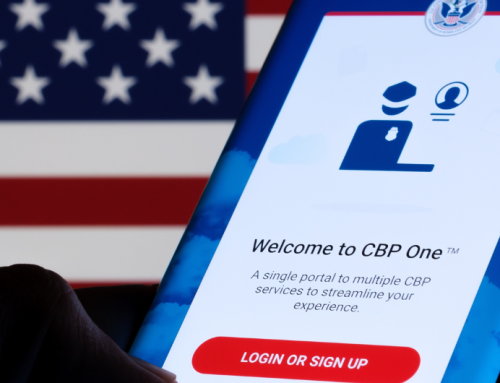 Here at I.S. Law Firm, we know that the immigration process is complex and often difficult. For those that don’t work with an immigration attorney in Virginia, it can be almost impossible. Below are seven mistakes that people tend to make when they don’t work with a qualified lawyer.
Here at I.S. Law Firm, we know that the immigration process is complex and often difficult. For those that don’t work with an immigration attorney in Virginia, it can be almost impossible. Below are seven mistakes that people tend to make when they don’t work with a qualified lawyer.
Forgetting to Pay the Fee
As you might expect, most USCIS have a required filing fee. If you forget to pay the fee, the USCIS will not process your application. While there are fee waivers available for some, it’s important to remember that a proper request has to be filed for this waiver to go into effect. Unfortunately, many applicants fail to realize this, and thus file without either the fee or the waiver request.
Sending the Application to the Wrong Place
Unfortunately, USCIS forms are complex. Even if English is your primary language, it can be difficult to follow some of the instructions. When applicants don’t read the instructions carefully, they can end up sending their applications to the wrong address. The good news is that the application will get sent back to the applicant. The bad news is that this will definitely delay the process – it’s rare that the application will be forwarded on to the correct address out of a sense of goodwill. It sometimes takes weeks until the misdelivered package is returned to the applicant.
Applying for the Wrong Immigration Benefits
This is most self-explanatory, but it does bear being repeated. Many people apply for the wrong immigration benefits, which does little more than set them back as they try to get the benefits they do deserve. Immigration can be tricky, and it’s not always easy to figure out for which benefits one can apply and for which benefits one is not eligible.
Listening to Friends/Relatives/Acquaintances
If an individual applying for a benefit has a friend or family member who has done the same, it can be difficult for the first person to realize that not everyone has the same circumstances. They might go to a friend instead of a one of the immigration lawyers VA is known for, and they might get bad information. In a best-case scenario, this will simply end with the individual in question failing to get a benefit. In other cases, though, it can mean the applicant will miss out on a benefit that he or she did deserve, or that the system has changed and that the applicant missed an important window.
Providing Incorrect Information
There are dozens of reasons why a person might provide bad information on an immigration form. Some might do it by mistake. Others might think they need to provide such information to get benefits. Still others blatantly lie, assuming immigration officials will ignore the information. In most cases, though, providing fraudulent information will lead to an individual’s rejection of a benefit and possibly initiation of deportation proceedings.
Ignoring Hearings and Interviews
The immigration process requires that an individual go through interview and court hearings. Many immigrants do not understand how important these interviews may be, and will often skip them due to other commitments. If they don’t show up, though, they will not be approved and may be deported.
Responding to USCIS Late:
The USCIS is very prompt when it needs information. There is always a timetable for the information’s return, and many individuals don’t realize that. Some miss their deadlines due to a simple lack of knowledge, not understanding that this can completely derail their applications. USCIS often gives a break if the response is delayed for 1-2 days; but they do not have to and sometimes a single day of delay can cause the denial of your application.
It is important to get in touch with a good immigration lawyer in the United States as early as possible to avoid potential problems and to plan the best immigration strategy for you and your family. Attorneys at I.S. Law Firm have provided immigration help to many immigrants and their families.
On this website, we have assembled useful information, resources and tips, and information on our law firm’s practice areas. The information provided on this website is not a legal advice and does not create attorney-client relationship. We try to expand and update the information and content on our website, by frequently adding new resources, tips, guides, and Q&As. However, every case has its own individual nuances, facts and circumstances. Therefore, it often becomes necessary to consult directly with a qualified attorney, who can answer your questions, explain your options, and give you legal advice and recommendations. Your consultation options include in-person visit to our office, telephone consultation, or online consultation via Skype. Our attorneys are eager to help you and give you the best legal advice. Thank you and we look forward to your visit!
Tel: +1-703-527-1779
Email: [email protected]
3930 Walnut Street
Suite 200
Fairfax, VA 22030






